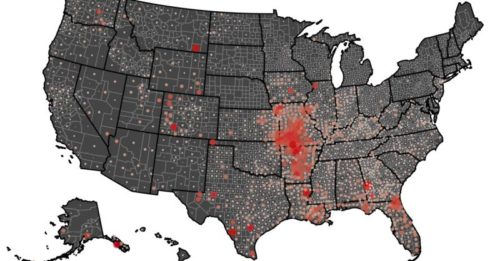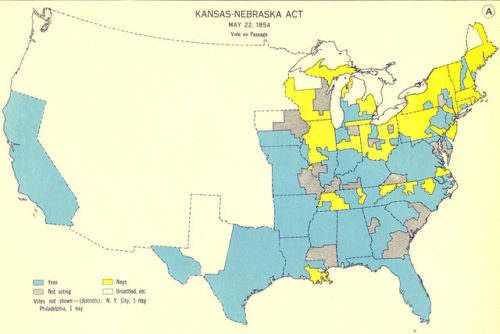According to Time.com the “4th Wave” of COVID-19 infections seems to have a very particular acceleration path through specific parts of America.

The distribution of infections reminded me of maps of Americans voting for slavery in the 1854 Kansas-Nebraska Act.

I’ve written before here how 1873 Slaughterhouse cases explain resistance to wearing masks for COVID-19.
Perhaps now we see a degree of validation of this history lesson; areas historically where Americans objected to freedom (e.g. abolition 1854, vaccination 2021) are places Americans are most likely to have less freedom.

Speaking of 4th waves, the Modern War Institute at West Point wrote this on the topic of militant resistance to authority:
Since the 1930s, insurgency has evolved through three waves. Here’s what the fourth wave could look like, and why we aren’t prepared for it.
They are talking about Syria, when perhaps they should have been researching Arkansas.